Posted by Megan Fischer-Colbrie from blog.bridgeathletic.com

At this time every year, athletes add another important aspect to their lives that can impact their training and performance: celebrating the holidays. With more time dedicated to seeing friends and family, this can be a healthful and restorative period for athletes—a chance to mentally recharge. The holidays, however, bring several temptations that when left unchecked can lead to negative effects on training that outweigh the positive energy during this month. Let’s look into how people tend to overindulge and what strategies you can exercise to maintain fitness through the month. Respect your hard work and discipline during the rest of the year by following these tips!
Indulge in Moderation.
One lavish meal won’t dig you into a hole but a season of calorie dense meals will, so try to exercise greater vigilance throughout the month. It is unlikely that the one to two pounds the average American gains during the holidays (and doesn’t lose, according to a The New England Journal of Medicine study) comes from a specific meal you had. The hidden calories are in all the little treats throughout the season. Included in that category are peppermint mochas, the candy bowl that sits on the table for the month of December, the endless supply of holiday cookies, and many more parties that involve festive drinks.
Focus on the holidays by spending time with family instead of focusing on the food. Enjoy a generous meal once or twice this season, and in between recognize all the seasonal treats that you don’t need to incorporate into your diet on a regular basis, as these are the calories that add up with the blink of an eye.
Pay attention to your drinks.
Approach seasonal beverages like pumpkin spice lattes and hot chocolate as dessert, reserved for special occasions.
One medium sized peppermint mocha will run you 330 calories and 60 grams of carbohydrates — the same amount of carbs as there are in 4 brownies! This can affect how you feel in training due to the high volume of sugar you may be drinking that you normally do not choose.
At holiday parties, skip the heavy cocktails and opt for red wine or clear liquor with club soda and a splash of lime, if you prefer and if you are of age. Drinks at night tend to leave you feeling tired the next morning. Alcohol can lead to faster time to falling asleep, but the trade off is far worse for the second half of night, according to director of the London Sleep Center Irshaad Ebrahim, lead author of a recent study. Alcohol decreases the time your body spends in REM sleep. Rapid Eye Movement sleep is the deep sleep during which dreaming and learning occurs and memories are stored. Less time in REM sleep can lead to restlessness, grogginess during the day, and an increase in appetite.
On that note, get plenty of sleep.
Pick carefully which holiday events you feel obliged to attend because multiple late nights can be disruptive for your training. If you are returning to school or work in January, your goal is to hit the ground running on the next phase of training and to be mentally re-invigorated to work hard.
Engage in new, but safe activities.
Share experiences with your family that create more memories than the typical gatherings around food. Go for family hikes, walks, or try ice-skating. For all athletes, I recommend saving the skiing and snowboarding for retirement and picking sledding or lower-risk activities in the snow. You have the rest of your life for recreational activities and do not want to risk injury. If you like to bake, try giving away most of the cookies as gifts to friends.
Healthy Holiday Alternatives:
After dutifully listening to this set of tips, here are a few simple substitutes to make your holiday meals healthier.
- When baking, try switching out half of your all-purpose flour for whole wheat flour (you’ll lose the spike in blood sugar and get a boost in fiber, vitamin B-6, folic acid, and potassium)
- When possible, use olive oil instead of butter. Sautee items in a pan or roast meat, poultry or vegetables in the oven with a drizzle of olive oil.
- Use coconut milk, yogurt, or even soft tofu in place of heavy cream for making soups or dips during the holidays. Coconut milk works well as a replacement in desserts while tofu can be used in savory dips and provide a little boost in protein.
- Try switching out half of the butter in a baking recipe for applesauce or another fruit puree. The puree will not change the flavor and will keep your baked items moist. Use prune puree for darker baked goods like chocolate cake or pear puree for lighter baked items such as muffins.
Most importantly, enjoy the holidays! Allow time with your family and friends help restore your mental health as you build momentum for the coming training cycle in the New Year. Wishing you a Happy Holiday Season from Bridge!
References:
- A Prospective Study of Holiday Weight Gain. JACK A. YANOVSKI, M.D., PH.D., SUSAN Z. YANOVSKI, M.D., KARA N. SOVIK, B.S., TUC T. NGUYEN, M.S.,
PATRICK M. O’NEIL, PH.D., AND NANCY G. SEBRING, M.ED., R.D
http://www.nejm.org/doi/pdf/10.1056/NEJM200003233421206 - http://www.starbucks.com/menu/catalog/nutrition?drink=all#view_control=nutrition&drink=espresso
- http://www.drugs.com/cg/basic-carbohydrate-counting.html
- http://healthland.time.com/2013/02/08/sleeping-it-off-how-alcohol-affects-sleep-quality/
- Taste of Home. "Secrets and Tips for Baking Light." (Oct. 2, 2012) http://www.tasteofhome.com/Healthy/Recipe-Makeovers/Baking-Techniques/Secrets-and-Tips-for-Baking-Light
- Ebrahim, I. O., Shapiro, C. M., Williams, A. J. and Fenwick, P. B. (2013), Alcohol and Sleep I: Effects on Normal Sleep. Alcoholism: Clinical and Experimental Research, 37: 539`–549. doi: 10.1111/acer.12006
Topics: Nutrition
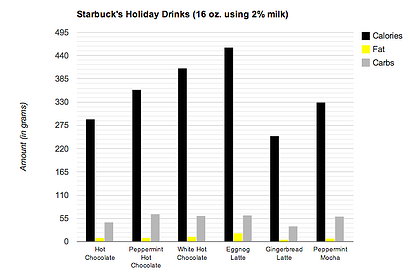
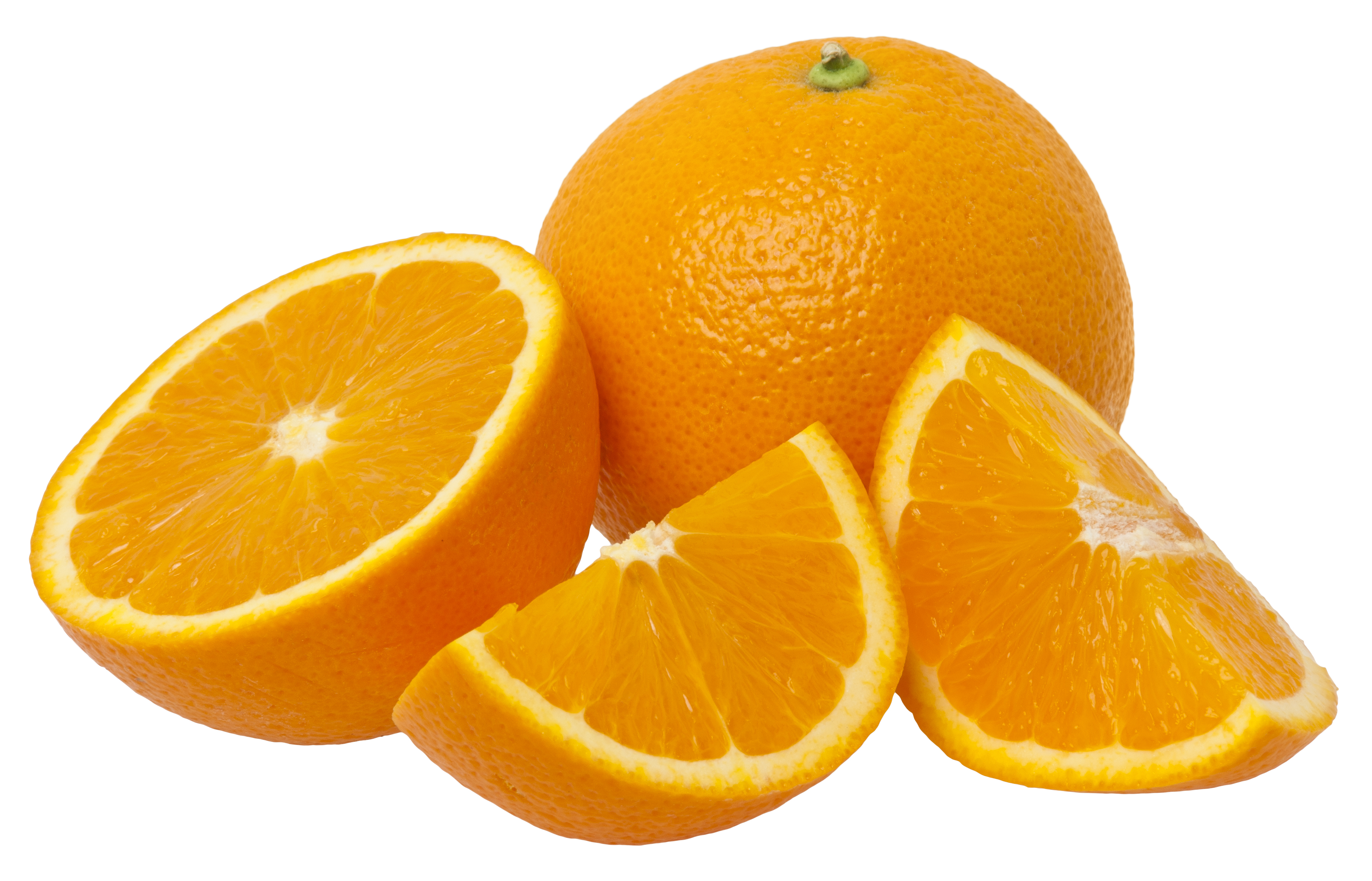 (which, don’t forget, cancels out some of the sugars) and the other nutrients stored in the skins and pulp.
(which, don’t forget, cancels out some of the sugars) and the other nutrients stored in the skins and pulp. Olympics, Anita rediscovered health through food. Traditional medicine’s failed healing attempts drove her towards a personal quest for wellness and a passionate understanding of the healing power of food. Her profound experiences with illness, healing and professional athletics have given her a unique perspective she shares with clients.
Olympics, Anita rediscovered health through food. Traditional medicine’s failed healing attempts drove her towards a personal quest for wellness and a passionate understanding of the healing power of food. Her profound experiences with illness, healing and professional athletics have given her a unique perspective she shares with clients. What makes an athlete elite? I haven’t met an athlete yet that doesn’t want to be at the top of their game, the tip of the spear, the best of the best. So, how do you get there? There are many components to success in sport. We are all familiar with attributes like hard work, determination, commitment, dedication and focus. But what else could help take your performance to another level? The elite athlete is always seeking new ways to perfect and grow in sport and improve his/her performance.
What makes an athlete elite? I haven’t met an athlete yet that doesn’t want to be at the top of their game, the tip of the spear, the best of the best. So, how do you get there? There are many components to success in sport. We are all familiar with attributes like hard work, determination, commitment, dedication and focus. But what else could help take your performance to another level? The elite athlete is always seeking new ways to perfect and grow in sport and improve his/her performance. It’s not enough that we get up super early, and regularly perform chlorinated and Herculean feats of training. There is also the battle in the kitchen. Here are the two things you need to stick to an awesome diet this season according to research.
It’s not enough that we get up super early, and regularly perform chlorinated and Herculean feats of training. There is also the battle in the kitchen. Here are the two things you need to stick to an awesome diet this season according to research.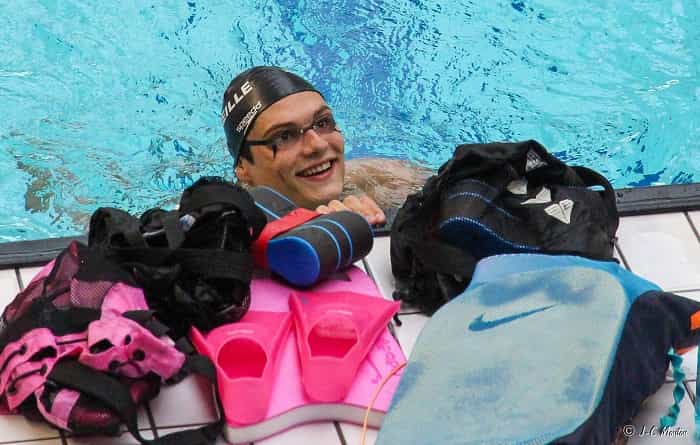

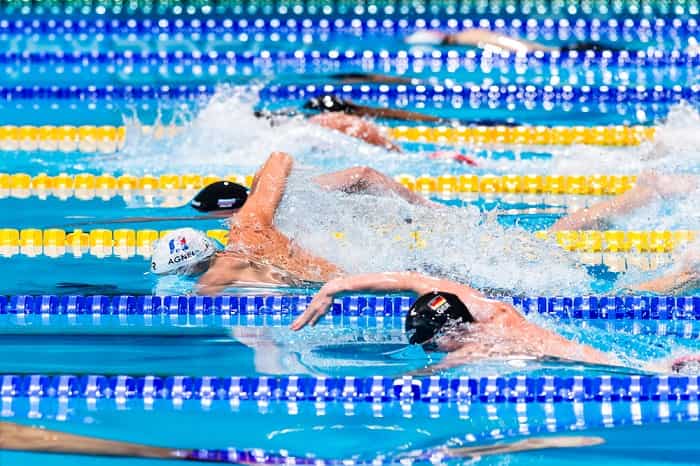
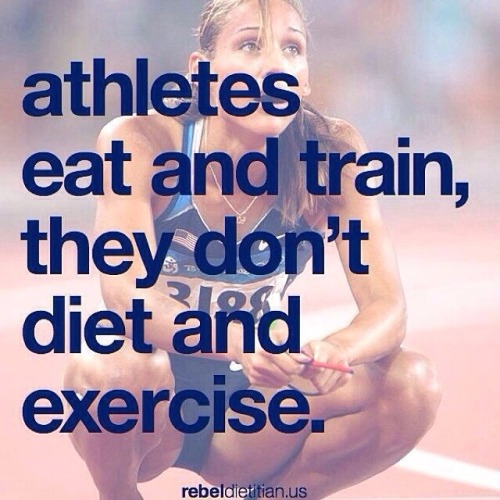 What makes an athlete elite? I haven’t met an athlete yet that doesn’t want to be at the top of their game, the tip of the spear, the best of the best. So, how do you get there? There are many components to success in sport. We are all familiar with attributes like hard work, determination, commitment, dedication and focus. But what else could help take your performance to another level? The elite athlete is always seeking new ways to perfect and grow in sport and improve his/her performance.
What makes an athlete elite? I haven’t met an athlete yet that doesn’t want to be at the top of their game, the tip of the spear, the best of the best. So, how do you get there? There are many components to success in sport. We are all familiar with attributes like hard work, determination, commitment, dedication and focus. But what else could help take your performance to another level? The elite athlete is always seeking new ways to perfect and grow in sport and improve his/her performance.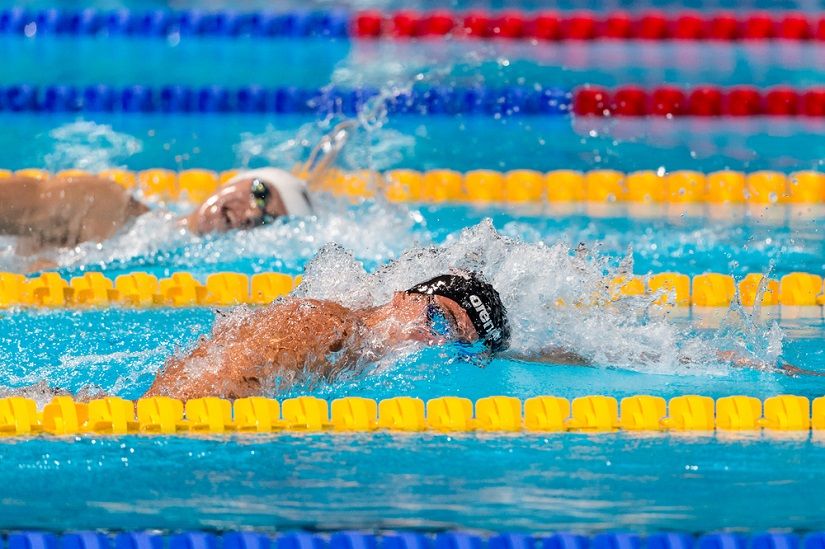
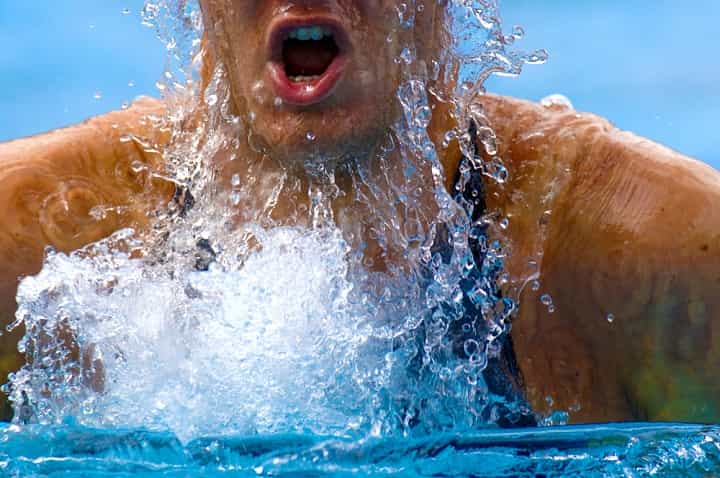

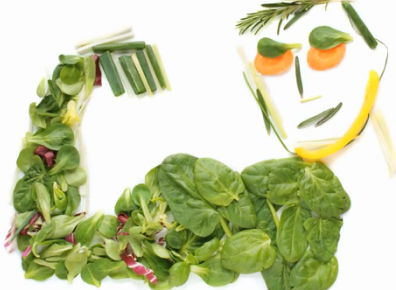 The swimmer appetite is legendary.
The swimmer appetite is legendary.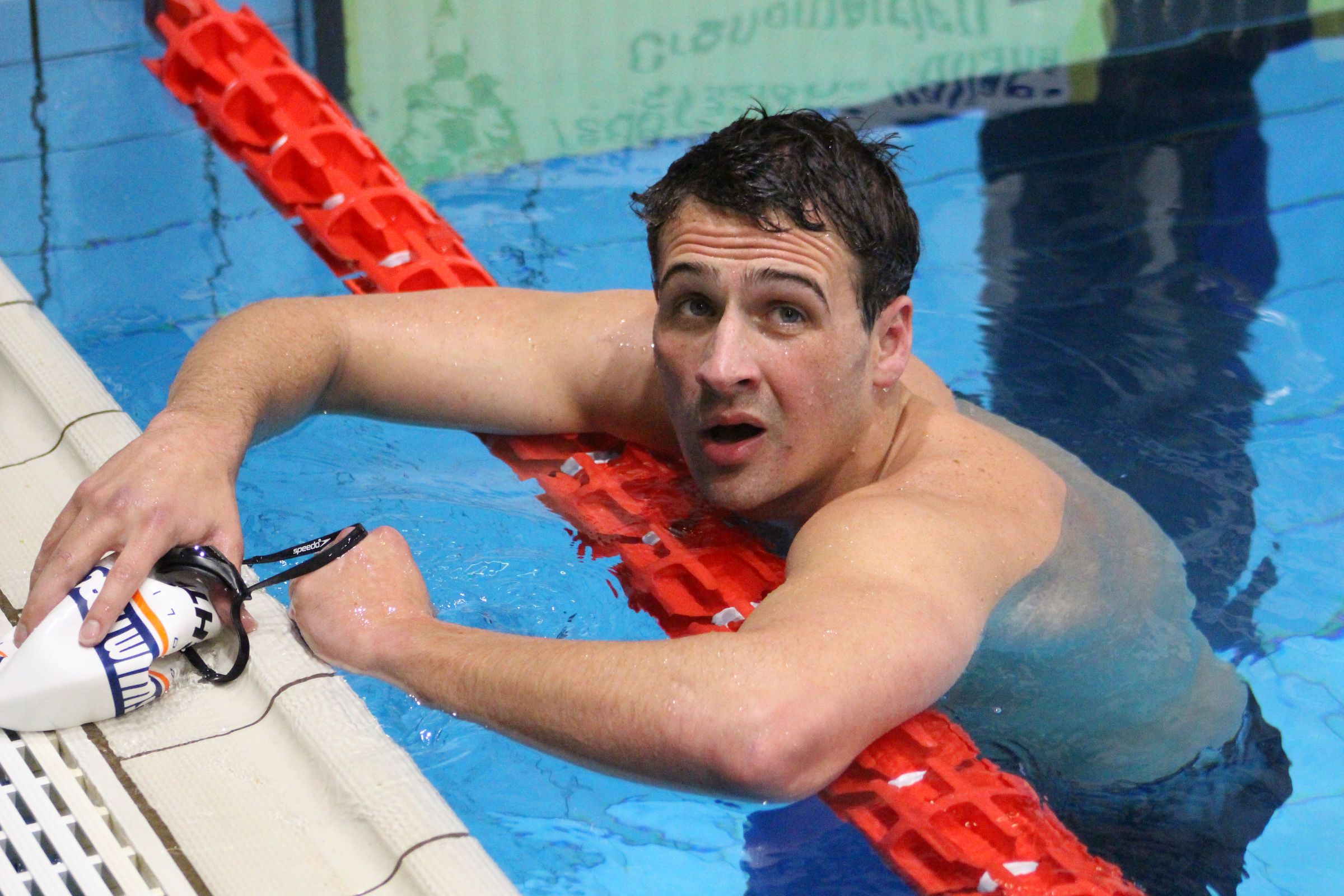 Swimming may be a low-impact sport that works all of your major muscle groups. With such high muscular demands, you may think that swimmers would spend considerably longer recovering than other athletes.Let’s see some vital key points to recover fast:-
Swimming may be a low-impact sport that works all of your major muscle groups. With such high muscular demands, you may think that swimmers would spend considerably longer recovering than other athletes.Let’s see some vital key points to recover fast:- Being disciplined concerning your bedtime will create a large impact on your training. rather than going through the motions in morning practices, you can wake up feeling more restored from the previous day’s workout and prepared to hit the ground running. head to bed one hour earlier than you usually do. See how you’re feeling. Sleep may be a key time for the body to undergo protein synthesis so catch some additional shut-eye and let your body develop muscle tissue while you’re at it.
Being disciplined concerning your bedtime will create a large impact on your training. rather than going through the motions in morning practices, you can wake up feeling more restored from the previous day’s workout and prepared to hit the ground running. head to bed one hour earlier than you usually do. See how you’re feeling. Sleep may be a key time for the body to undergo protein synthesis so catch some additional shut-eye and let your body develop muscle tissue while you’re at it. 

 Student-athletes need to fuel early and often in order to meet their daily energy needs. Studies show that students who eat breakfast before school have better concentration, attention spans and memory, three benefits that are significant for both sports and scholastic performance1. Consuming food and fluid at regular intervals throughout the day has also been shown to impact total health, body composition, appetite satisfaction and well-being.
Student-athletes need to fuel early and often in order to meet their daily energy needs. Studies show that students who eat breakfast before school have better concentration, attention spans and memory, three benefits that are significant for both sports and scholastic performance1. Consuming food and fluid at regular intervals throughout the day has also been shown to impact total health, body composition, appetite satisfaction and well-being. The goal of recovery nutrition is to replace fluid, electrolytes, and glycogen that were lost during activity, make new muscle protein, red blood cells and other cellular components, and provide adequate carbohydrate, amino acids and minerals to promote proper immune function3. Both carbohydrate and insulin are needed to optimize glycogen stores—consuming carbohydrate-rich foods or fluids provides glucose, which stimulates the release of insulin from the pancreas.
The goal of recovery nutrition is to replace fluid, electrolytes, and glycogen that were lost during activity, make new muscle protein, red blood cells and other cellular components, and provide adequate carbohydrate, amino acids and minerals to promote proper immune function3. Both carbohydrate and insulin are needed to optimize glycogen stores—consuming carbohydrate-rich foods or fluids provides glucose, which stimulates the release of insulin from the pancreas.